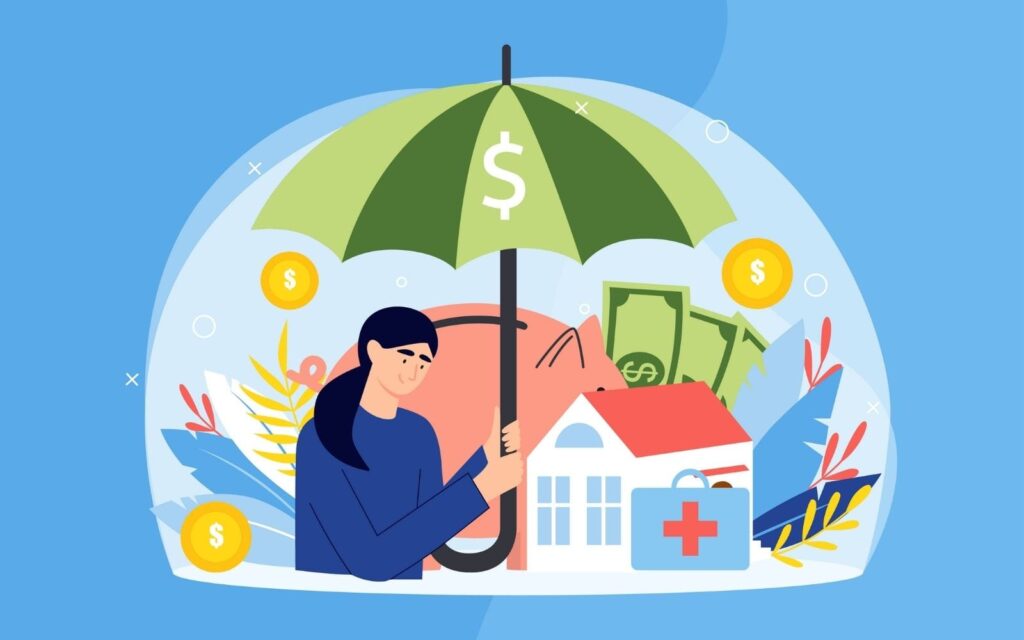Disclosure: This post may contain affiliate links. If you click on a link I may make a small commission at no extra cost to you. You can read the full disclosure here.
Last Updated on December 24, 2022 by Chris Panteli
Finance Experts Bust The Biggest Savings Myths

Widespread internet access has made it easier for people worldwide to access free advice and resources about saving money. Today, anyone is free to share finance tips online, which has opened many doors for many people. But this has also spread myths and misinformation about how saving actually works.
To help you find genuinely helpful advice from a heap of random tips that are actually making you lose money, we got 5 finance experts to bust the biggest saving myths.
Recommended: Study: 15+ Personal Finance Statistics You Need To know
Myth: You have to make a lot of money to save
Fact: One of the biggest and oldest savings myths is that you need a huge salary to make decent savings. But the truth is, “Your savings will be determined by how much you save rather than how much you make,” says Jared Weitz, CEO and founder of United Capital Source, a business funding platform. “If you can allocate a decent percentage of your monthly income to savings, you can still build some savings without having an exorbitant salary.”
Another point new savers miss is that being rich doesn’t automatically make you great at saving more money. “You must develop good financial habits, irrespective of your earnings,” says Matt Gillman, founder and CEO of SMB Compass, a business finance company. “If you are earning more, you will see yourself spending more, for a luxurious life and for maintaining your standard of living.”
That’s why having a fixed percentage of your income go to the savings account makes a huge difference no matter how much you earn.
Myth: Saving will make you rich
Fact: It’s tempting to believe that saving a lot of money will make you rich, but this isn’t always true. “Saving is not the key to building wealth,” Weitz says. “Instead of saving, investing in safe investments, like index funds or ETFs, is almost guaranteed to grant a higher rate of return over time.”
Myth: You need to cut off fun activities to save money
Fact: You don’t have to stop hanging out with your friends and going to the restaurant to build savings. Of course, it helps, but it isn’t a necessity.
“While it is important to have a plan for long-term savings, you don’t need to completely sacrifice your current lifestyle in order to do so,” says Matt Teifke, a property investment advisor and founder and CEO of Teifke Real Estate.
“Consider finding creative ways to cut costs like making small adjustments to your grocery list or searching for deals on entertainment and travel.” He adds, “You can also make small changes to your lifestyle like taking up a money-saving hobby or setting a no-spend period each month.”
Myth: Debt is bad
Fact: Popular finance advice will tell you to avoid debt. But not all debt is bad, experts say. “Debt can allow us to do incredible things: It gives us access to assets that grow wealth and accumulate much faster than the rates we must borrow at to acquire the asset in the first place,” says Rob B. Bacharach, CFP® CRPC® from RB Wealth Partners. “Put your money towards something that will grow, generate income, and help you accumulate wealth,” instead of keeping it locked up in a bank account with a 3-5% return.
A common example of this is starting your own business. You might have to take on a business loan, but if the business is successful, you can make a lot more money and invest it to grow further. This is something that a bank savings account can’t offer.
Myth: Investing is like a casino, you lose all your money

Fact: Investing can be seen as “unpredictable” and “risky.” People believe the stock market is like a casino and putting your money in the bank is the safest bet, says Robert R. Johnson, PhD, CFA, CAIA, professor of finance, Heider College of Business, Creighton University.
However, “According to data compiled by Ibbotson Associates, large capitalization stocks (think S&P 500) returned 10.3% compounded annually from 1926-2020,” says professor Johnson. “Over that same time period, long-term government bonds returned 5.7% annually and t-bills returned 3.3% annually.”
That’s why, “the surest way to build wealth over long time horizons is to invest in a diversified portfolio of common stocks,” he adds. “Taking a long-term time horizon and consistently investing — essentially pursuing a strategy of dollar cost averaging into a well-diversified, low-cost stock index fund — takes much of the risk out of investing.”
Myth: Buy less expensive products so you have more money for savings
Fact: Buying less expensive products to save more money seems like an obvious solution, but practically, it isn’t the best strategy for building long-term savings.
“We opt for the cheaper version only to end up having to buy a second one in a short period of time, usually the more expensive one, after the cheap one failed, when we could have bought the more expensive one in the first place and been better,” Bacharach says. “Quickly we went from “saving money” to spending more money!”
Instead of being trapped in a cycle of buying and throwing out cheap products, “make your purchase decisions based on how frequently you use the item,” Bacharach suggests. “If you use it a lot (like a computer for work), spend the money on the upgraded version as it will likely pay dividends in performance, speed, and reliability.”
On the other hand, “If you are considering a new kitchen utensil you use 1x a year, opt for the less expensive option,” he adds.
Myth: DIY to save money vs. hiring a professional

Fact: Are you tempted to take on more DIY projects around the house to avoid paying for professional services? Well, that strategy might backfire.
“By the time you have made multiple trips to the store missing supplies, screwed up once or twice, and potentially made a small problem a bigger one, you could have hired someone to do the job in a few hours,” Bacharach says. “Instead of taking on projects outside of your wheelhouse, hire the professional and focus on what you do best.”
This will free up your time and resources to upskill yourself and increase your earning potential. “This will pay dividends far beyond learning how to remodel your master bathroom or fix the leaky pipe on your own,” Bacharach says.







